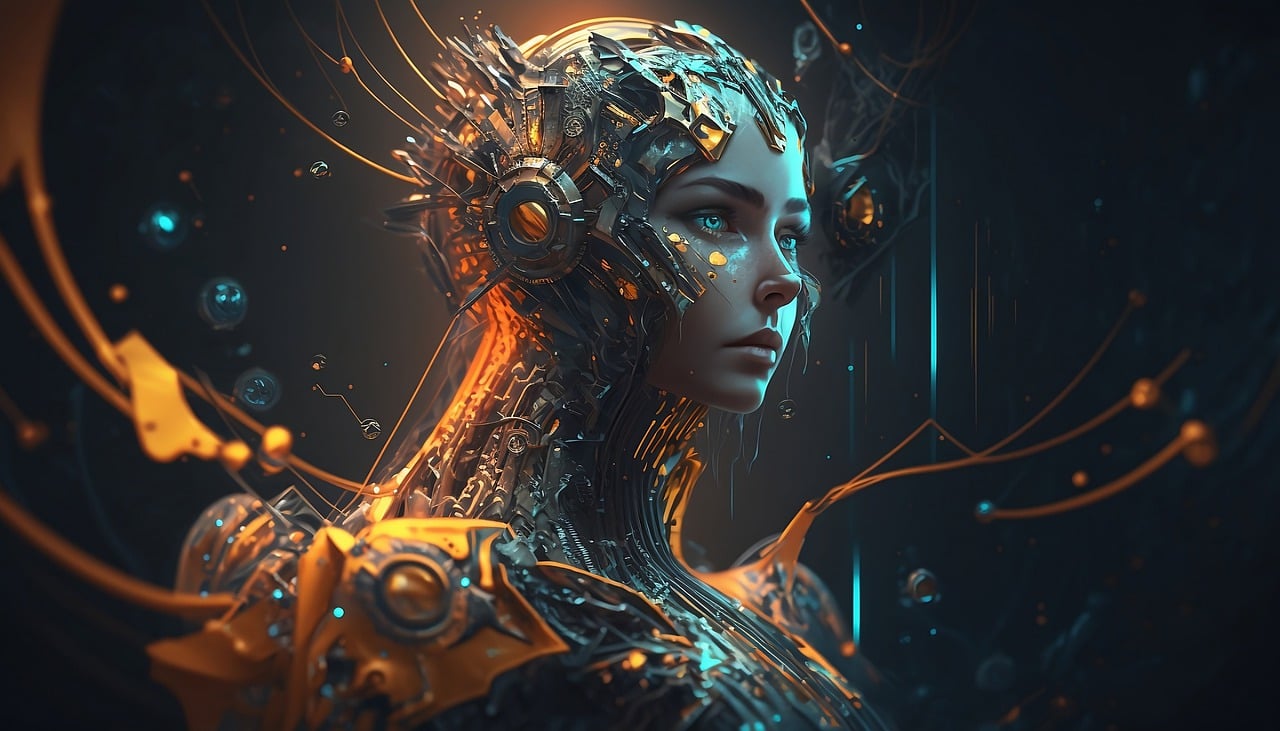Blockchain technology has revolutionized the way we handle transactions and data, primarily in the realm of cryptocurrencies. However, its potential applications extend far beyond digital currencies. One exciting possibility is the integration of blockchain technology with artificial intelligence (AI). In this article, we’ll explore how blockchain technology could play a crucial role in enhancing the control and transparency of AI Blockchain systems
Enhancing Data Security and Privacy
Blockchain’s inherent security features make it an ideal candidate for safeguarding the vast amounts of data used in AI systems. Traditional databases are centralized, making them vulnerable to breaches and hacks. In contrast, blockchain operates on a decentralized network, which means data is distributed across multiple nodes, making it incredibly difficult for malicious actors to tamper with or access sensitive information. By using blockchain to store and manage data, AI developers can ensure that data privacy and security are paramount, a critical concern in an era where data breaches are on the rise. Users can have more confidence that their personal information is protected when interacting with AI-powered applications.
Verifiable and Transparent AI Models
One of the significant challenges with AI is the lack of transparency in how models make decisions. It’s often difficult to trace the logic behind AI-generated outcomes, leading to concerns about bias, fairness, and accountability. Blockchain’s transparency features can help address these concerns. Blockchain records all transactions and changes to the data, creating an immutable ledger. By integrating blockchain into AI systems, developers can log every input, decision, and output made by the AI model, allowing for complete transparency and traceability. This transparency can help identify and rectify any biases or errors in AI decision-making.
Decentralized Control and Governance
The control and governance of AI systems are essential for ensuring they operate ethically and responsibly. Blockchain’s decentralized nature can empower a more distributed approach to AI governance. Instead of relying on a single entity to manage and regulate AI, a network of stakeholders can collaboratively oversee AI systems through a blockchain-based governance model. This decentralized governance can involve a consensus mechanism where stakeholders vote on AI model updates, algorithm changes, and ethical guidelines. It reduces the risk of AI becoming too centralized or controlled by a single entity, fostering a more democratic and accountable AI ecosystem.
Secure and Trustworthy AI Blockchain Marketplaces
Blockchain can facilitate the creation of secure AI marketplaces where AI developers can showcase their models and users can access them with confidence. Smart contracts, a feature of blockchain technology, can automate payment transactions and ensure that users get the expected results from AI services. Furthermore, blockchain-based AI marketplaces can enforce licenses, copyrights, and intellectual property rights, which are crucial in the world of AI innovation and development.
Conclusion of AI Blockchain
Blockchain technology holds great promise in revolutionizing the way we control and regulate AI systems. Its security, transparency, decentralization, and trust-building features can address many of the challenges associated with AI, making it safer and more accountable. As the integration of blockchain and AI advances, we can expect a more ethical and responsible AI landscape that benefits both developers and users alike.

Leave a Reply